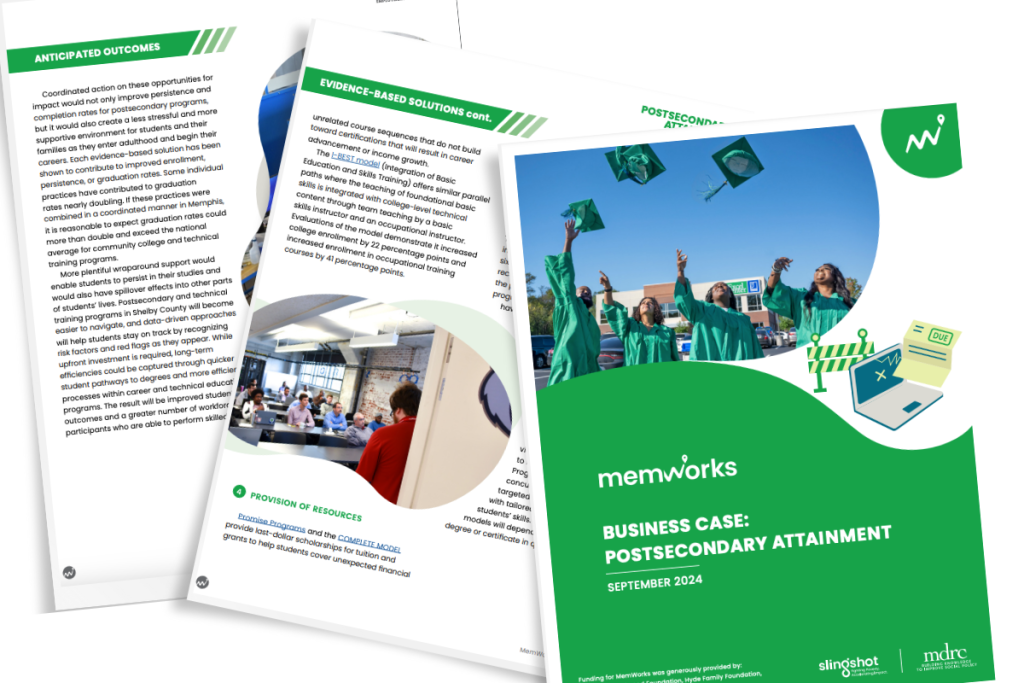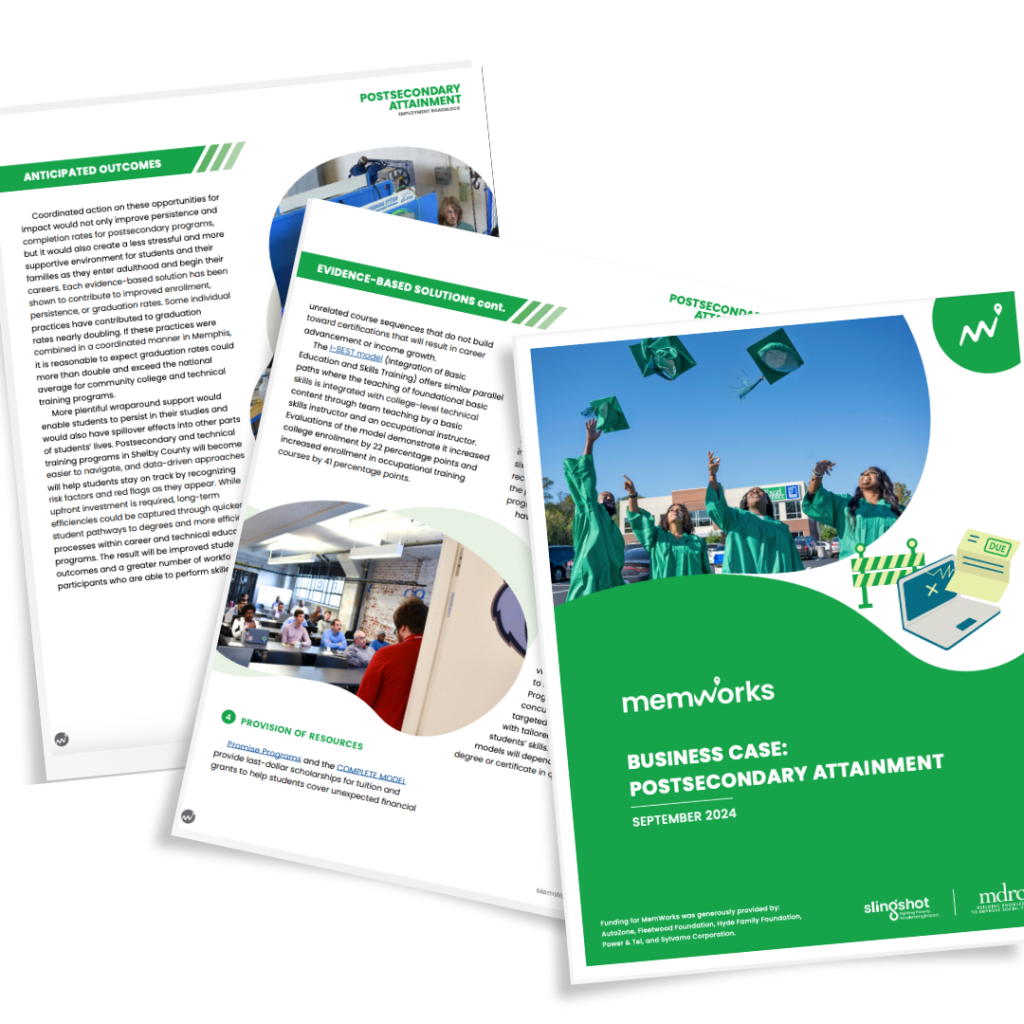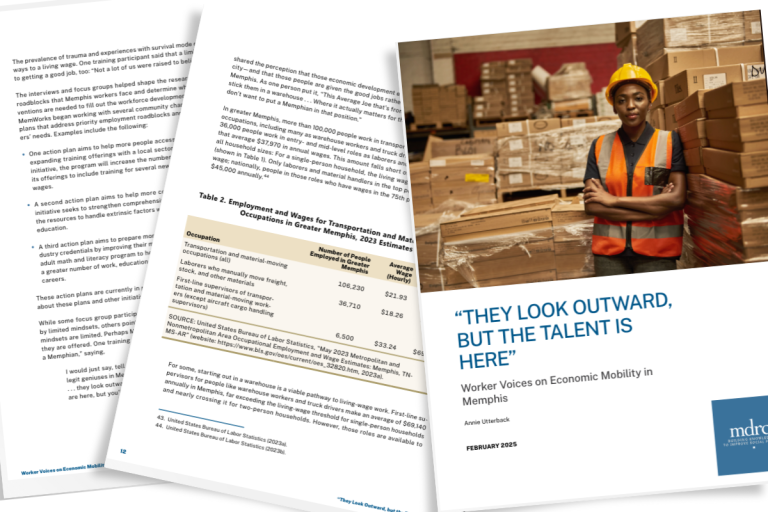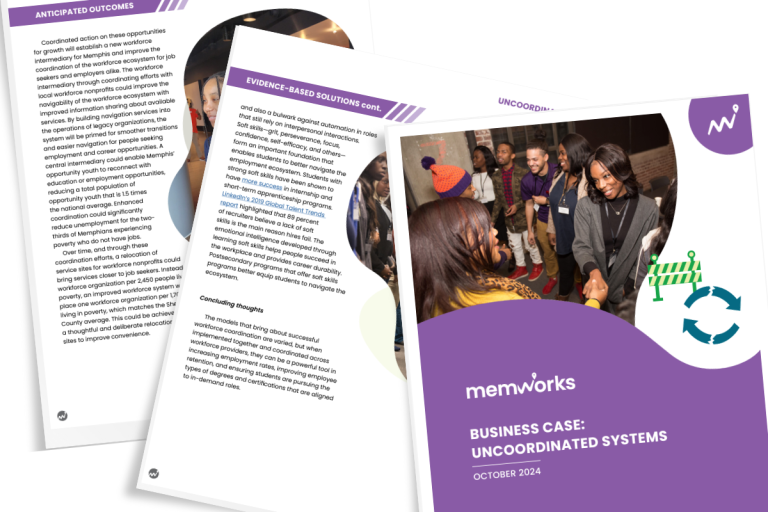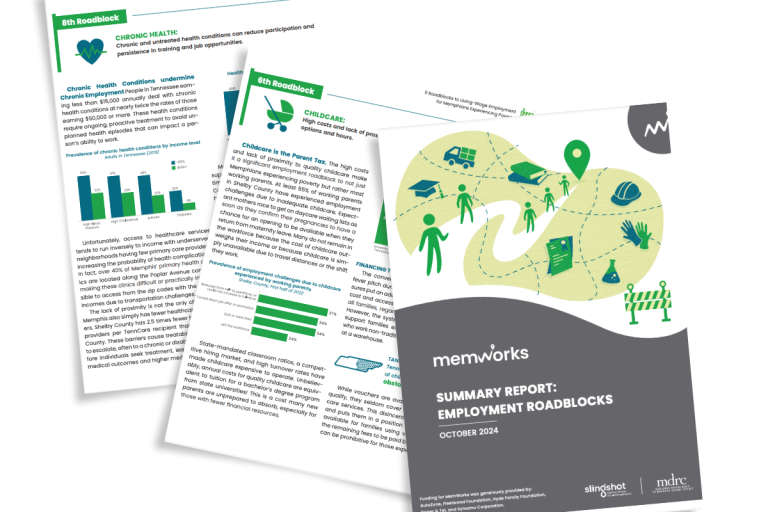We are excited to share the first of several business case reports. The purpose of these business cases is to summarize all the information from the MemWorks initiative needed to best help our community remove these employment roadblocks for our neighbors experiencing poverty. Each business case report includes an overview, summary of the evidence, curated evidence-based interventions with case examples, analysis of the Memphis landscape for the roadblock, specific opportunities for impact that could be implemented, and the anticipated outcomes by addressing the roadblock.
Postsecondary education attainment
This business case is focused on overcoming challenges to postsecondary attainment. 1 in 4 Memphians experiencing poverty have attempted to pursue some form of postsecondary education or training but have been unable to complete their programs. If we want to enable the conditions where Memphis Works for Everyone, we need to implement evidence-based solutions that help people successfully navigate the barriers to competing postsecondary programs.
As you decide how to be a part of the solution, consider this business case your map for how to effectively help increase postsecondary attainment. MemWorks has determined the root causes of employment roadblocks for Memphians experiencing poverty, and now is the time for us to implement evidence-based solutions – together. If done with persistence and collaboration, we can help create pathways to economic mobility for all Memphians.
Use this report to further empower your efforts
Each of us are uniquely positioned to help tackle the postsecondary attainment employment roadblock. It requires the varying roles we each play and the individual approaches we can contribute working together to address the various aspects of this roadblock. To help support your efforts, below we have outlined how different types of stakeholders might be able to use the insights from the Postsecondary Attainment Business Case Report.
Philanthropists
Evaluate how your philanthropic focus areas might contribute to increasing postsecondary attainment, even if education is not a focus area. Which of your focus areas could address barriers for postsecondary students (e.g., transportation, digital connectivity, etc.)? How could you collaborate with others who have different philanthropic focus areas to augment your support to increase postsecondary attainment?
Corporate Leaders
Explore ways your organization can support student persistence and completion from the postsecondary programs you hire from. How can you provide resources to help overcome barriers students experience? Are there benefits you can offer your current workforce to help their children complete postsecondary programs?
Career & Technical Education Providers
Engage your students and graduates to better understand the challenges they experience trying to complete your programs. Are there administrative items or processes that could be adjusted to reduce barriers? How could you partner with nonprofits to help your students access additional support to overcome barriers to completion?
Business Associations
Work with postsecondary institutions to increase the number of program graduates for roles that are understaffed in your industry(s). What expertise can your members contribute to help postsecondary programs minimize barriers to completion? How can you strengthen programming or increase capacity for organizations trying to support these students?
Local Government Leaders
Consider how governmental agencies and services might be applied to address barriers students face to complete postsecondary programs. Could eligibility requirements for helpful services be adjusted to incorporate postsecondary students? Are there existing programs/services that could be modified to better address barriers to completion?
Workforce Development Nonprofits
Evaluate how your programming could be applied to overcome the various barriers to postsecondary attainment. How could you partner with postsecondary programs to provide support to help its students complete programs? Are there new populations you could serve or an alternative application of your programming that could reduce barriers for students?
We hope the above questions and prompts jumpstart how you can contribute to helping increase postsecondary attainment for Memphians living in poverty. We encourage you to use this business case report to design new efforts, enhance existing efforts, and galvanize support to overcome the challenges to postsecondary attainment. In the coming weeks, we will release additional business cases to help empower our community with the interventions and approaches that can most effectively overcome Memphis’ other employment roadblocks.
